Aphasia
What is Aphasia? Aphasia is a disorder caused by damage to the parts of the brain that contribute to the understanding or use of language. Aphasia usually occurs in adults who have had a stroke, a brain tumor, infection, brain injury or dementia. Someone with aphasia may find it hard to talk, understand spoken words,…
Read MoreAlzheimer’s Disease
What is Alzheimer’s Disease? Alzheimer’s disease is the most common form of dementia and is caused by plaques (deposits of protein fragments) in the brain. Dementia is an acquired progressive condition that affects many areas of cognitive function and has a major impact on communication skills. What can professionals do to help? For more information,…
Read MoreAccent Modification/Accent Reduction
What is Accent Modification/Accent Reduction? Although accents are not a disorder, accent modification or accent reduction, which refers to teaching clients to speak with standard Canadian or American accents, is within the scope of practice of speech-language pathologists. What can professionals do to help? Speech-language pathologists (SLPs) have training in phonetics, phonology (sound patterns), and…
Read MoreAAC (Alternative and Augmentative Communication) – Adult
What is AAC (Alternative and Augmentative Communication)? AAC means Augmentative and Alternative Communication. Although not a disorder, AAC is mentioned here because it is a communication option for people who have difficulty speaking. Loss or absence of speech can have a significant effect on relationships and on quality of life. Using AAC to supplement or…
Read MoreAAC (Alternative and Augmentative Communication) – Child
What is AAC (Alternative and Augmentative Communication)? AAC means Augmentative and Alternative Communication. Although not a disorder, AAC is used by many individuals who are unable to speak or have severe difficulty communicating with others. AAC can supplement or replace speech, writing, or nonverbal communication in individuals who have severe speech and language problems. Vocalization,…
Read More(Central) Auditory Processing Disorder (CAPD) – Adult
What is (Central) Auditory Processing Disorder (CAPD)? Auditory Processing Disorder (APD), often called Central Auditory Processing Disorder (CAPD), is a complex problem that is estimated to affect 2-3% of children and youth, but the incidence in the general population is most likely higher because adults may develop APD as a result of brain injury (stroke,…
Read More(Central) Auditory Processing Disorder (CAPD) – Child
What is (Central) Auditory Processing Disorder (CAPD)? Auditory Processing Disorder (APD), often called Central Auditory Processing Disorder (CAPD), is a complex problem that is estimated to affect 2-3% of children and youth. Children with APD have normal hearing but have difficulty processing and understanding what they hear. Children live and learn in a noisy world,…
Read More